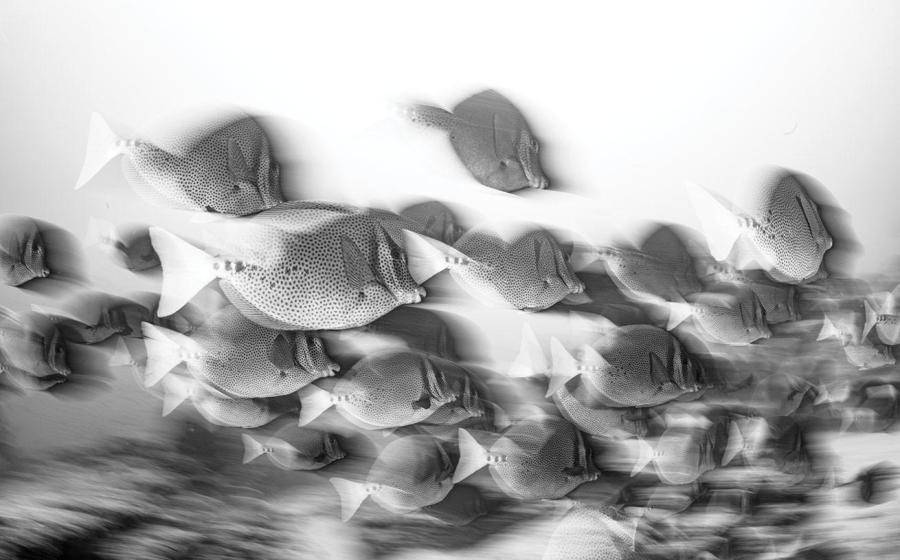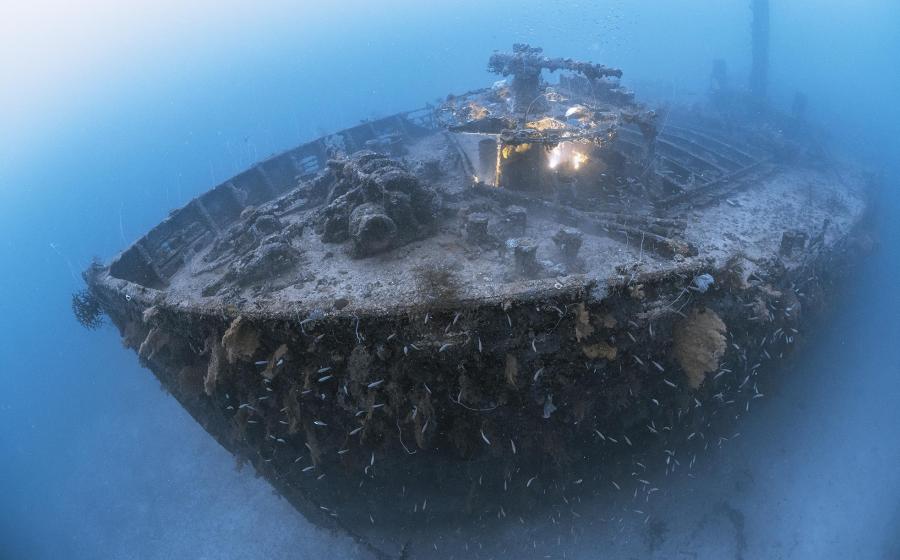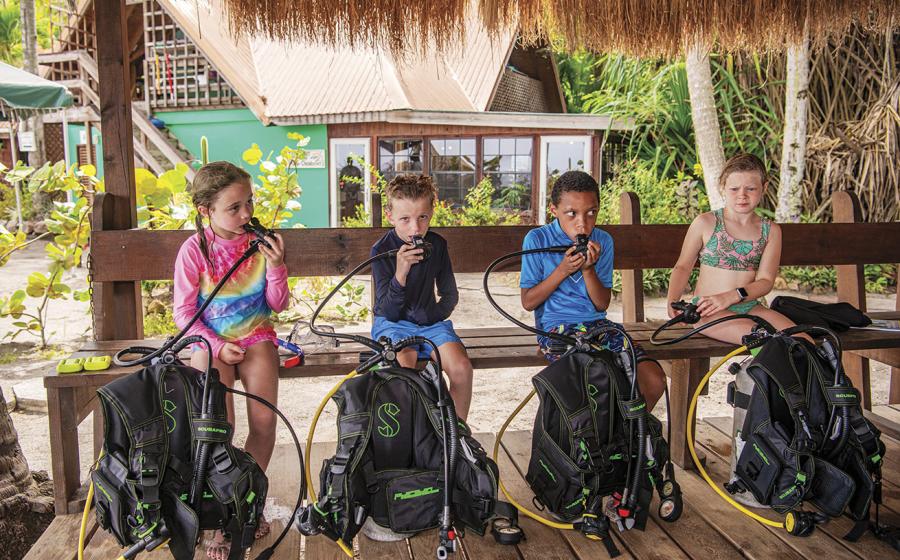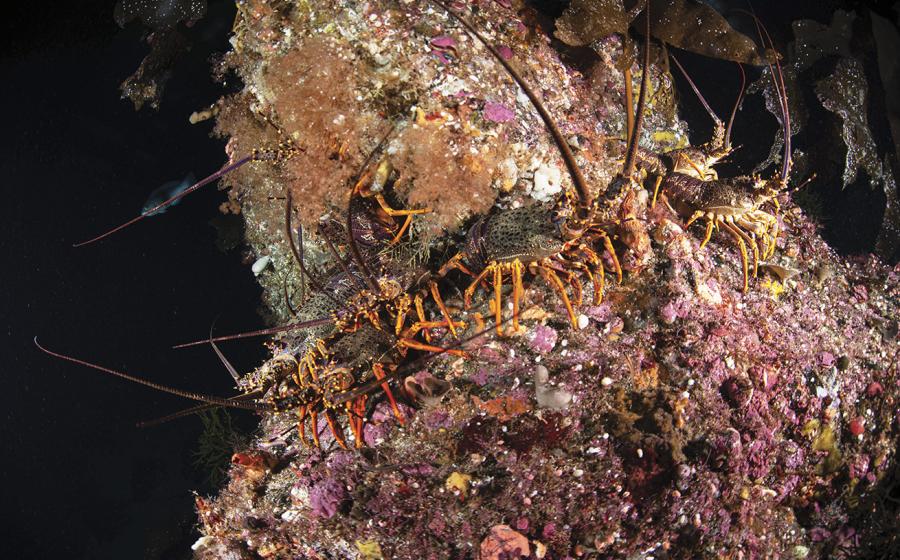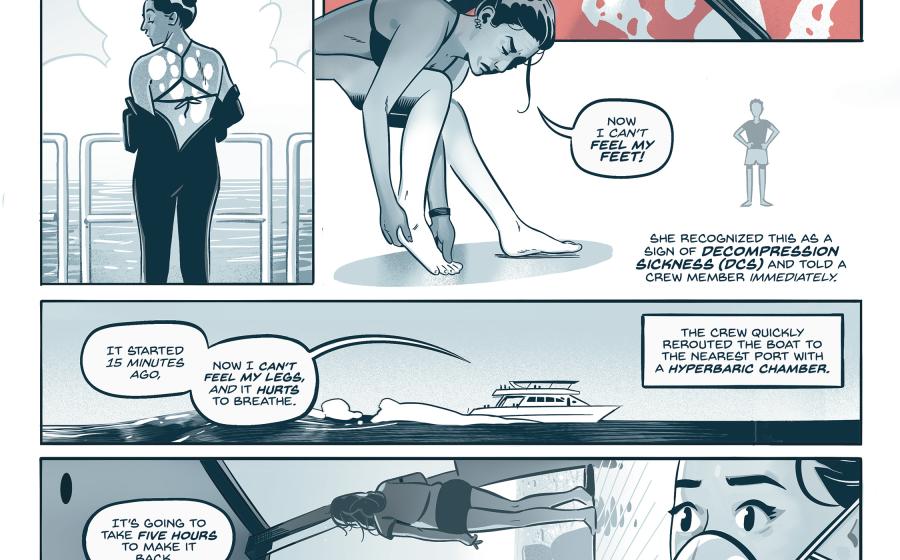10 Tips for Avoiding Nitrogen Narcosis

Tips for Avoiding Nitrogen Narcosis
Ty Sawyer
We've said it before, and we'll say it again: When you dive deep, you need to be aware of the symptoms of nitrogen narcosis. Because when you're narced and feeling good, you're not getting high — you're getting comatose. It's extremely dangerous because it attacks your most important piece of life-support equipment: your brain. In fact, the threat of nitrogen narcosis, not decompression illness (DCI), is the primary reason for setting the traditional recreational depth limit at 130 feet.
Nitrogen narcosis has been called everything from "compressed air intoxication" to "rapture of the deep." More properly, it's "inert gas narcosis" because any inert gas — and even some non-inert gases — can cause it. Nitrogen just happens to be the major inert component in air, and therefore the main cause of narcosis in recreational diving. Often, when diving a wall or wreck, divers go deeper than they would on an easy, 60-foot recreational reef dive. Even advanced open-water divers can get narced — the slang term for nitrogen narcosis.
The first symptoms of nitrogen narcosis are subtle, "A lot of people have narcosis but don't ever know it because they're never called upon to do anything but breathe. It's when something happens that requires a response that they get in trouble," says Hal Watts, who has trained thousands of deep divers at Forty Fathom Grotto in Ocala, Fla.
10 Tips to Avoid Nitrogen Narcosis
1. Take a course in deep diving from a qualified instructor. You'll learn warning signs of narcosis and skills in coping with it, and you'll gain confidence. Nitrogen narcosis can build on anxiety.
2. Be rested. Fatigue accentuates nitrogen narcosis.
3. Be clean and sober. A hangover, even the effects of over-the-counter drugs, can make narcosis worse.
4. Exhale thoroughly. You'll expel more carbon dioxide, which seems to accelerate the onset of narcosis.
5. Plan your dive, dive your plan. Decide depth, route, frequency of buddy checks, etc. and stick to it. Leave as few decisions as possible to be made "under the influence."
6. Watch yourself. Sure, it's supposed to be fun, but could it really be this much fun?
7. Watch your buddy. Does he seem uncoordinated? Silly? Acting odd?
8. Don't become fatigued. Don't try to do too much.
9. Watch your instruments. Believe them.
10. When in doubt, ascend. Often, an ascent of only 10 or 20 feet will clear your head.
For more on nitrogen narcosis, go to How To Outsmart Nitrogen Narcosis.
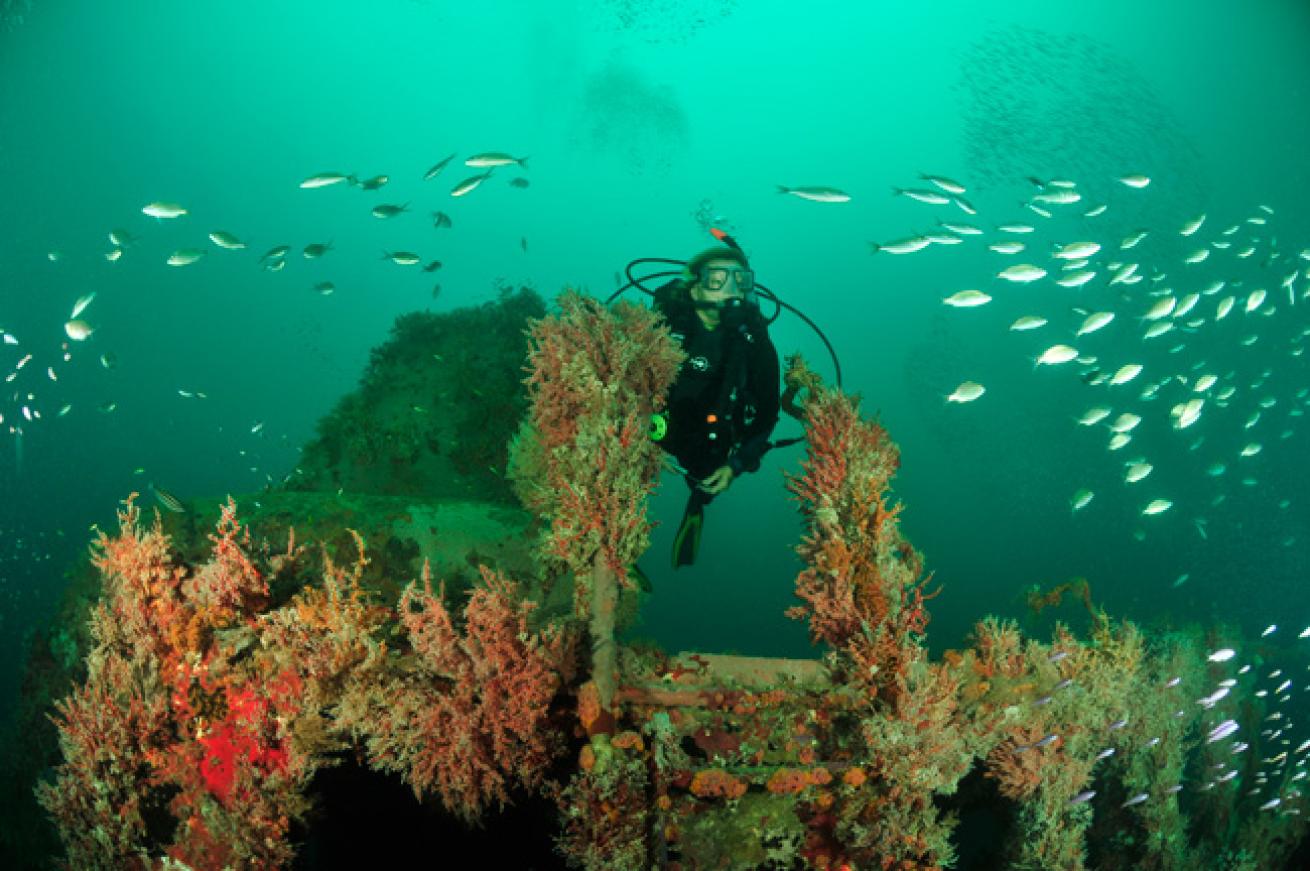
Ty Sawyer
We've said it before, and we'll say it again: When you dive deep, you need to be aware of the symptoms of nitrogen narcosis. Because when you're narced and feeling good, you're not getting high — you're getting comatose. It's extremely dangerous because it attacks your most important piece of life-support equipment: your brain. In fact, the threat of nitrogen narcosis, not decompression illness (DCI), is the primary reason for setting the traditional recreational depth limit at 130 feet.
Nitrogen narcosis has been called everything from "compressed air intoxication" to "rapture of the deep." More properly, it's "inert gas narcosis" because any inert gas — and even some non-inert gases — can cause it. Nitrogen just happens to be the major inert component in air, and therefore the main cause of narcosis in recreational diving. Often, when diving a wall or wreck, divers go deeper than they would on an easy, 60-foot recreational reef dive. Even advanced open-water divers can get narced — the slang term for nitrogen narcosis.
The first symptoms of nitrogen narcosis are subtle, "A lot of people have narcosis but don't ever know it because they're never called upon to do anything but breathe. It's when something happens that requires a response that they get in trouble," says Hal Watts, who has trained thousands of deep divers at Forty Fathom Grotto in Ocala, Fla.
10 Tips to Avoid Nitrogen Narcosis
1. Take a course in deep diving from a qualified instructor. You'll learn warning signs of narcosis and skills in coping with it, and you'll gain confidence. Nitrogen narcosis can build on anxiety.
2. Be rested. Fatigue accentuates nitrogen narcosis.
3. Be clean and sober. A hangover, even the effects of over-the-counter drugs, can make narcosis worse.
4. Exhale thoroughly. You'll expel more carbon dioxide, which seems to accelerate the onset of narcosis.
5. Plan your dive, dive your plan. Decide depth, route, frequency of buddy checks, etc. and stick to it. Leave as few decisions as possible to be made "under the influence."
6. Watch yourself. Sure, it's supposed to be fun, but could it really be this much fun?
7. Watch your buddy. Does he seem uncoordinated? Silly? Acting odd?
8. Don't become fatigued. Don't try to do too much.
9. Watch your instruments. Believe them.
10. When in doubt, ascend. Often, an ascent of only 10 or 20 feet will clear your head.
For more on nitrogen narcosis, go to How To Outsmart Nitrogen Narcosis.

